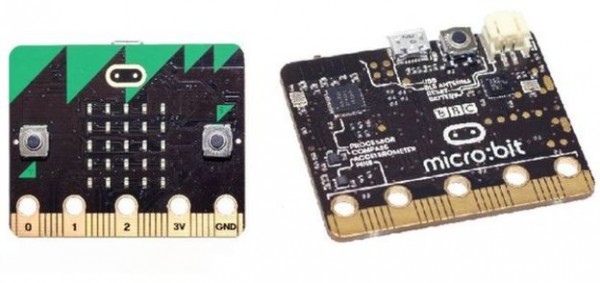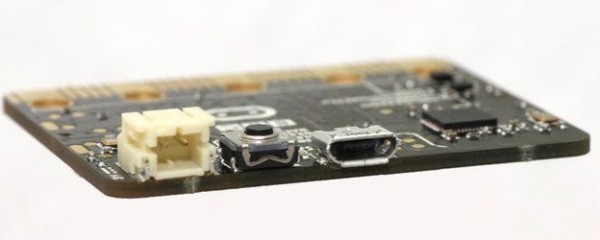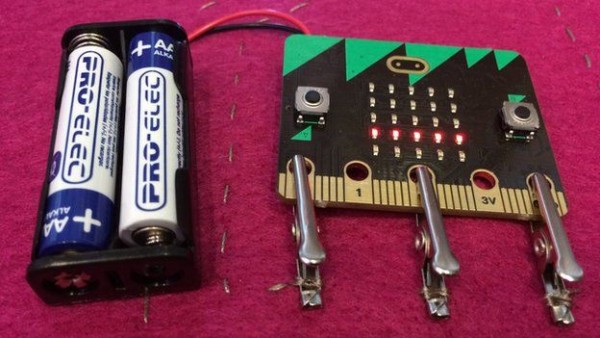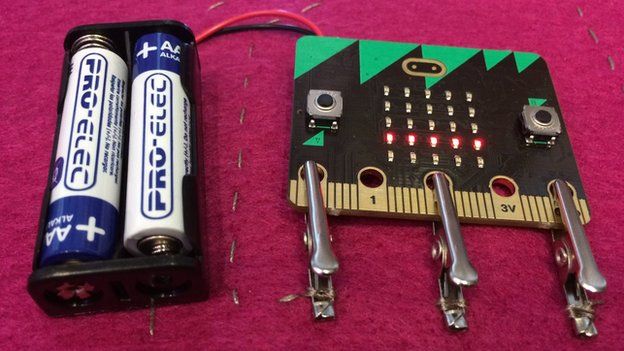
The BBC has revealed the final details of the Micro Bit, a tiny computer that it intends to distribute to some one million school children in the UK. The goal of the project is to encourage students to learn programming, as more and more students were leaving school knowing how to use computers but have no idea how they work.
Micro Bit itself doesn’t do much. The board mounts 25 LEDs (meant to be used as a display), an accelerometer, two programmable buttons, a magnetometer, BlueTooth, and five I/O rings. It also has a microUSB port, which appears to be mainly intended to allow students to download code to the device. The I/O rings allow Micro Bit to be attached to another computer, like the Raspberry Pi or Intel’s Galileo, for more complex functions.

Multiple technology companies have contributed their expertise in the creation of the Micro Bit, and the list includes giants like ARM, Microsoft, Samsung, and Nordic Semiconductor.
All programming will be done through the Micro Bit website, which will allow the students to test their code in a virtual environment before downloading it to their miniature computers. As a teaching component goes, this is a substantial project; especially considering that it is aimed at 11 and 12 year-olds in Year 7.

The BBC intends to make the Micro Bit’s specifications open source for those who would like to build their own. It is also preparing to sell the computer to schools and individuals who do not qualify for the free distribution programme. The BBC Micro Bit will first roll out when the UK school year begins in October.
[Source: BBC]
Follow us on Instagram, Facebook, Twitter or Telegram for more updates and breaking news.



